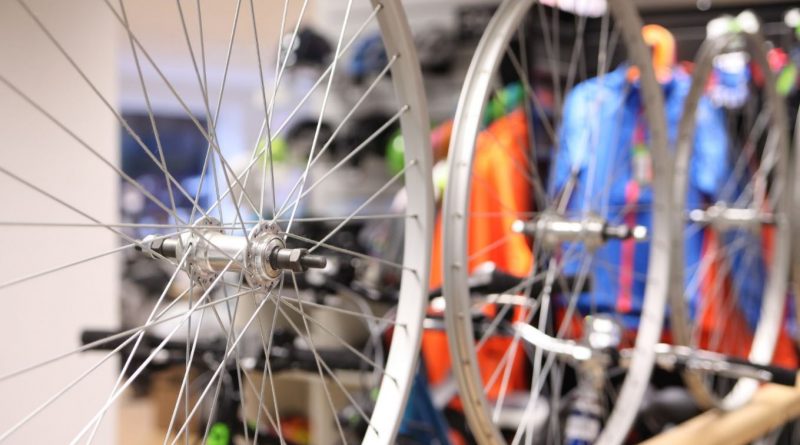Ask the trade: How has the pandemic changed bike retail?
It has been said that the pandemic has accelerated a number of trends that were seeded with bike retail, but still evolving. Following on from our discussion about adaptation around low stock availability, four store owners share their views on what they perceive to have changed in the past 18 months…

Many believe the pandemic has accelerated trends in online retail, consumer experience and other bike retail re-shuffles. What stands out to you as the greatest accelerated change to the landscape?
Tim Astley, Berwick Cycles
When I bought the bike shop four years ago the received wisdom was small retailers trying to compete online with the bigger players and discounters was a mug’s game. It was accepted that not having a full online presence was sustainable. Now, I would say that if any retailer no matter the size, does not have e-commerce capabilities, they are doomed to stagnate or even shrink, given the step change in shopping habits such as the massive growth in home browsing and Click & Collect. On a more positive note for the IBD, the struggles of the major high street retailers presents a fantastic opportunity to offer a combined online and physical experience that can be truly valued by customers.
Jake Voelcker, BicycleWorks
The biggest surprise for us has been the success of an appointments-based shopping experience. Customers make an appointment online or over the phone, and then we can get a bike ready for them to test ride, and we can guarantee that they will be the only one in the shop and will have our undivided attention. We introduced this as a Covid safety measure, but it’s working so well we are planning on keeping it.
There has been an uptick in the number of online orders we’ve received, but for several years now we’ve had a fairly fluid business model whereby there isn’t a sharp divide between online and in-store purchases. Because all our bikes are built to order, all sales go through the website, even our in-store sales. Therefore, customers can do whatever suits them; order online and then pop into the store for final adjustments and bike set-up, or test ride in-store but opt for home delivery when the bike is ready. They can also prepare a cycle scheme quote on the website and then collect the bike in-store; or any combination of these. For customers trying to juggle childcare, homeworking, self-isolating, and other changes during the pandemic, this kind of flexibility has been really popular.
Jon Colborne, The Bike Inn
Certainly a diversification to the online arena has become a far more urgent necessity to almost all businesses, not just within our industry. Adaptability is critical at a time like this and seeking out new ways to do traditional practices has been the key for so many to be able to sustain their businesses and their livelihoods.
For our mechanics’ training school, we brought forward our future plans to offer online training, which proved an extremely popular choice. Within the workshop environment it has been essential to offer customers solutions that have enabled both them and us to operate safely – so having a collection and delivery service, contactless payment options, and a flexible approach to problem solving have been key.
In addition, we have been extending our help and support to the large network of Bike Inn qualified mechanics across the country – all of whom were hit by the stock problems in one way or another. We have acquired items that they themselves have struggled to find and have pointed them in the right direction to new supply channels and innovative solutions.
Are you finding customers willing to try new brands in the face of lessened choice and are they bothered by the switch?
Tim Astley, Berwick Cycles
We’ve been forced to try new brands ourselves due to the severe supply difficulties and so far it seems our customers are happy to do the same. Brand recognition will take time to build but there is no doubt that we can widen our appeal, as well as fight back against those brands have abandoned the small IBDs.
Jon Colborne, The Bike Inn
We have been overwhelmed by the understanding from our clients – we don’t want to have to penalise them in any way for a situation that is beyond everybody’s control. They have seen how hard we have worked to still provide the highest quality and most professional service that we pride ourselves on, and have responded very positively.
As well as being open to using different brands, customers have themselves been willing to spend time sourcing parts, as well as welcoming solutions that have seen us repairing rather than replacing harder to find items.
(Editor’s note: Brands outside of the big two are reporting promising signs of market share growth)
Will demand sustain or could we again end up with too much stock in the bike retail market down the line?
Tim Astley, Berwick Cycles
I worked as a management consultant in supply chain risk for many years and I’ve seen enough in other industries and economic cycles to know that nothing lasts forever and that businesses like ours need to be prepared for all eventualities. However, planning in the current fluid environment is very tricky. In the short to medium term, it seems we’re in for continued shortages if only for the industry to re-build its pipeline from the current low levels. Longer term, the economic consequences of the pandemic have not yet fully played out and without careful management, there is definitely a risk of a surplus. Against that, though, the social and environmental appeal of cycling has ratcheted up and is a real positive for sustained long term growth. Overall, I don’t think there’s been a better time to be in the cycle trade.
Jake Voelcker, BicycleWorks
In general I think demand will remain somewhat higher than before, but not at the crazy peaks we saw in summer 2020.
Bikes that appeal to new cyclists (entry-level to mid-range hybrids; electric bikes; family-friendly bikes and kids’ bikes) will be particularly popular as people return to work and want to find alternatives to public transport.
But in other areas, and particularly on high-end bikes if we have a recession coming, I foresee that there could be a glut of stock on the UK market. A bit like the mini cycling boom we had around 2014 or 2015, this year we have seen several new shops opening and heard of existing shops panicking about lack of stock and placing large forward orders for bikes. Will they be able to sell them all when they finally arrive?
Jon Colborne, The Bike Inn
Looking forwards, having witnessed a peak in the new bike sales sector, we anticipate that this is going to filter through to the servicing and repair market as over time people will wish to maintain or modify their bicycles. On the whole, there will be a far larger fleet of bikes across the country, and these will all need the attentions of mechanics at one time or another.
A further knock-on effect will see a growth in demand for professionally trained mechanics, who themselves will need tools, parts and spares to carry out their trade, so we see our industry heading into a positive growth era. We are already experiencing part of this as our professional training courses are quickly booking up.



